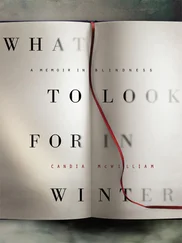Edeet Ravel - Look for Me
Здесь есть возможность читать онлайн «Edeet Ravel - Look for Me» весь текст электронной книги совершенно бесплатно (целиком полную версию без сокращений). В некоторых случаях можно слушать аудио, скачать через торрент в формате fb2 и присутствует краткое содержание. Жанр: Старинная литература, на английском языке. Описание произведения, (предисловие) а так же отзывы посетителей доступны на портале библиотеки ЛибКат.
- Название:Look for Me
- Автор:
- Жанр:
- Год:неизвестен
- ISBN:нет данных
- Рейтинг книги:5 / 5. Голосов: 1
-
Избранное:Добавить в избранное
- Отзывы:
-
Ваша оценка:
- 100
- 1
- 2
- 3
- 4
- 5
Look for Me: краткое содержание, описание и аннотация
Предлагаем к чтению аннотацию, описание, краткое содержание или предисловие (зависит от того, что написал сам автор книги «Look for Me»). Если вы не нашли необходимую информацию о книге — напишите в комментариях, мы постараемся отыскать её.
Look for Me — читать онлайн бесплатно полную книгу (весь текст) целиком
Ниже представлен текст книги, разбитый по страницам. Система сохранения места последней прочитанной страницы, позволяет с удобством читать онлайн бесплатно книгу «Look for Me», без необходимости каждый раз заново искать на чём Вы остановились. Поставьте закладку, и сможете в любой момент перейти на страницу, на которой закончили чтение.
Интервал:
Закладка:
No one I knew visited the camps, and I didn’t tel anyone at school that we went, because the one time I mentioned it, there was a big scandal. In third grade we had to write a composition on the topic “How My Family and I Contribute to the State.” My father suggested I write about our visits to the camps, and I took his advice, though I knew we were both being deviant: he in his suggestion and I in my compliance. I described the poverty, the living conditions, and what we did. My uncle saw patients and distributed medicine (which he stole from the State, but I didn’t mention that), and my father xed things that were broken. I played with the local children, who competed to have me visit their homes—a dizzying assortment of structures crammed together and piled up like boxes one on top of the other. In these neat lit le rooms I would stu myself with sweet baklava and empty my bag of toys on the oor. The Palestinian children spoke Arabic and I spoke Hebrew, but at that age language is mal eable. We spent hours exploring the possibilities of the treasures I’d brought: marbles, dol s, trucks, airplanes, cards, Pick Up sticks, dominoes. I gave a detailed account of these visits in my essay, and concluded, In this way we contribute to people who are under occupation, we show them that we are not al horrible, and we help the State see what it’s doing wrong.
My parents were cal ed in, and my mother, who was not in the habit of keeping her thoughts to herself, had a huge ght with the principal. She cal ed him an impotent, narrow-minded pimp, a poor excuse for an educator, a limp, spineless State puppet. She said she felt sorry for him and sorry that her daughter had to be exposed to his stupidity. Then she swept out of his o ce like a diva and slammed the door. I was sit ing in the hal way outside, and I felt both proud and dismayed. I admired my mother but I took after my father, who was averse to conflict.
I was happy about our move to the city; I had just reached the age at which smal towns become irredeemably boring. My mother’s death two years later left my father literal y speechless: for several weeks he walked around in a daze, confused and unable to concentrate on anything. When he nal y began speaking he was mostly incoherent, and he sat and stared into space for hours, a puzzled look on his face. I think he contacted Git e because the only life he could make sense of was one that had not included my mother. Git e was divorced, lonely, and excited to hear from him. Let ers with foreign stamps began arriving at our place; shortly afterward my father ew to Belgium for a week, and when he returned he announced that he was going to marry Git e, and that I would be happy in Belgium. I didn’t believe him.
He became convinced, later, that his anachronistic ight into the arms of love was irresponsible and that, like Anna Karenina, he had made a drastic choice. For as a result of the disorder in my life after he left, I did not graduate from high school. I failed al my subjects apart from English, which didn’t require any exertion on my part. I was bilingual, not only because my parents spoke English at home, but also because I loved to read novels about the mystifying world of adults and the best ones came from my parents’ bookshelves: I was particularly fond of

I loved to read novels about the mystifying world of adults and the best ones came from my parents’ bookshelves: I was particularly fond of Iris Murdoch and George Eliot, but I was also a Miss Reed addict.
He blamed himself, but I felt he’d made the right decision and I was happy for him. His let ers suggested an ideal life: a two-hundred-year-old house with sweeping staircases and secret panels; a place in the local men’s choir; close friends who came over for dinner and chess. He often spent his evenings reading by the replace or, when it was warm, on a patio facing the tulip garden; his French was improving and he’d picked up some Flemish as wel . As for Git e, she had not disappointed him. He said she spoiled him, and his let ers were ful of cassoulet and sou é à l’orange: his tone when he described these dishes was reverent. It was obvious that he and Git e were general y compatible. They both liked theater and books and conversation and, oddly, knit ing; my eccentric father had taken up knit ing, which he found “relaxing, touching, and spiritual y satisfying.” This late romance was the inspiration for one of my novels, though of course I had to change most of the details. My father was transformed from a slightly overweight, myopic engineer to a young, dashing horse breeder (who obviously did not knit). My mother became delicate and innocent, a ower taken in her youth. As for Git e, I had never met her, and so was free to invent her both in ction and in life. My father sent me a photo of the two of them next to their large house, but the photo was taken from a distance, and Git e is wearing a wide-brimmed hat which throws a concealing shadow over most of her face.
Benny was sit ing at my kitchen table when I came home from Ein Mazra’a. He lived upstairs from me and had a key to my at, in case I lost mine; sometimes when I wasn’t home he went inside and waited for me. I was on friendly terms with everyone in my building: my legless and maddening neighbor Volvo, who had moved into the smal one-room at adjacent to ours shortly after Daniel left; Jacky, former rock star and prince of the city; Tanya, former prostitute, now a successful fortune-tel er; and Tanya’s mother. Benny lived on the top oor, next to two large ats that had remained empty for as long as anyone could remember because of some dispute that had been tied up in the courts for decades.
Benny was a restless, impatient person. He drove a taxi, and lately he’d been struggling to make ends meet; the tourist industry had nearly vanished and the col apsing economy a ected everyone. On the other hand more people were taking taxis because they were afraid of being blown up on a bus. That helped a lit le, but not enough.
Benny had other worries, too. He had a very emotional relationship with his ex-wife Miriam. The two of them stil fought and stil had sex, behind her boyfriend’s back. He hated her and loved her and couldn’t rid himself of his desire for her. He vowed to quit smoking and he vowed to stop seeing Miriam, but he hadn’t had much success with either plan.
He was burly and hairy, though in recent years he’d started balding, much to his dismay. His real age was forty-one, but he liked to tel people he was thirty- ve. He did repairs in my at, bought me smal practical gifts like coat hooks, and worried about my safety. Often he gave me long, mournful lectures about my political views, trying to explain, patiently and hopelessly, why I was wrong to help and trust the enemy. He pitied the Palestinians too—but their miserable situation wasn’t our fault. It was their fault, because they had terrible leaders and because they hated us and would never accept us and because they would always want al the land, including our State. And for the past seventy years they’d been trying to kil us; even before the State was founded they’d already started with their wild at acks, plunging knives into women and children, slicing of their heads.
At other times he spoke just as mournful y and hopelessly about Miriam. He worried that she was neglecting their children; he didn’t trust her new boyfriend. A self-centered pig, he said, who was drawing Miriam away from the children, and she was too blind to grasp what was going on. What she saw in that poor excuse for a human being, that pet y crook who was born with his brain in his arse and his nose in other people’s arses, he would never know. Benny was a devoted father, and sometimes when I walked along the seashore with my jeans rol ed up to my knees I’d see him sit ing Buddha-style on a blanket, surrounded by his four smal children. One would ride on his broad shoulders while the others poured sand over his crossed legs or tried to impress him with their acrobatics. He’d grin at me from the midst of his clan, but he’d never invite me to join him.
Читать дальшеИнтервал:
Закладка:
Похожие книги на «Look for Me»
Представляем Вашему вниманию похожие книги на «Look for Me» списком для выбора. Мы отобрали схожую по названию и смыслу литературу в надежде предоставить читателям больше вариантов отыскать новые, интересные, ещё непрочитанные произведения.
Обсуждение, отзывы о книге «Look for Me» и просто собственные мнения читателей. Оставьте ваши комментарии, напишите, что Вы думаете о произведении, его смысле или главных героях. Укажите что конкретно понравилось, а что нет, и почему Вы так считаете.












